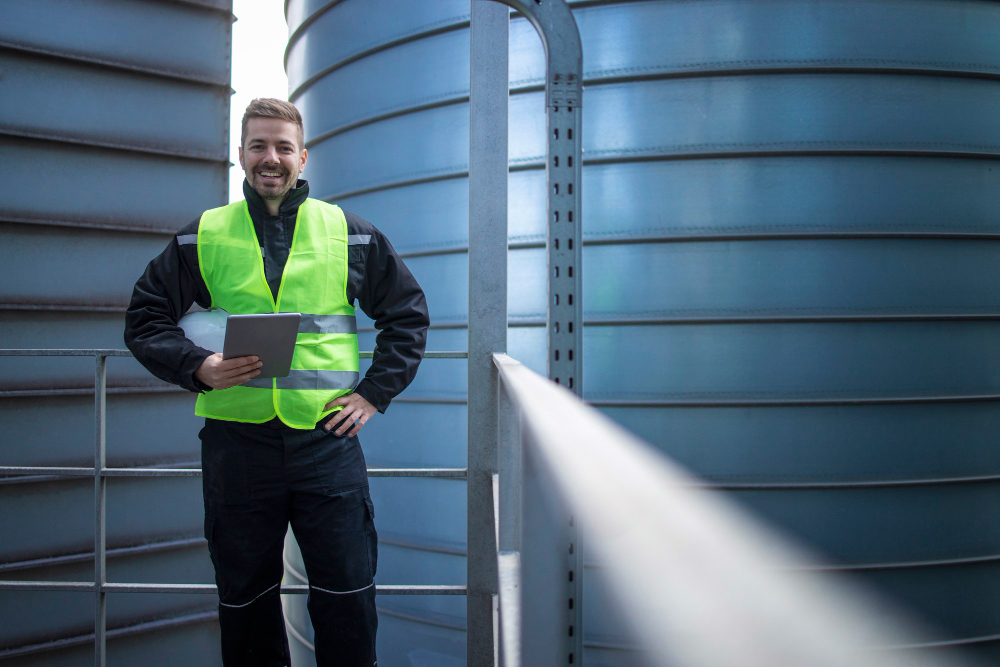Have you ever been caught in a situation where your municipality is enduring drought conditions, or running out of fresh water? If so, then you know the importance of putting together an efficient plan for proper water storage. Finding ways to conserve and store clean, safe drinking water should be at the top of your priority list in these trying times – not just for now but also into the future. In this complete guide, we’ll cover all aspects essential to creating effective methods of storing larger quantities of drinking water for emergency purposes. We will provide key tips from experts and those who have tackled similar situations themselves as well as explore various practical solutions that can yield long-term success stories when access to potable tap water becomes scarce.
Benefits of Storing Water for Emergencies
Emergencies can happen unexpectedly. It is crucial to prepare for any situation and having a stockpile of water can be a lifesaver. Not only can storing water ensure the survival of you and your family during prolonged power outages or natural disasters, but it can also save you money in the long run. Having a supply of clean, drinkable water means you won’t have to buy expensive bottled water during times of crisis. Additionally, storing water is an environmentally conscious decision as it reduces plastic waste from disposable water bottles. Take the first step towards being prepared for emergencies and consider storing water today.
Types of Water Storage Tanks and Containers
In today’s world, water storage has become an indispensable part of our daily lives. With the increasing demand for clean and accessible water, different types of water storage tanks and containers have emerged to satisfy this need. There are several types of water storage containers available for consumers, including plastic water tanks, concrete and steel tanks, and flexible water carriers. Each container is designed to meet specific needs, depending on the quantity of water required, the available space, and the level of durability needed. Whether you are looking for a large-capacity storage container or a compact and portable solution, there is a perfect water storage tank or container that can fit your requirements.
Best Practices for Properly Storing Water
Water is a vital resource for our everyday lives, but storing it properly is just as important as having access to it. To ensure that the water you store is safe for consumption, there are a few best practices to keep in mind. Firstly, it’s important to store water in clean, food-grade containers that are free of any chemicals or contaminants. Make sure to label the containers with the date of storage and regularly check for any damages or leaks. It’s also best to store water in a cool, dark area away from direct sunlight and any potential sources of contamination. By following these simple guidelines, you can have peace of mind knowing that your stored water is fresh, clean, and safe to drink in any emergency situation.
Rainwater Harvesting Systems and How They Work
Rainwater harvesting systems are a sustainable solution for water conservation in both residential and commercial properties. The process of collecting and storing rainwater for future use may sound complicated, but in reality, it’s quite simple. The process begins by collecting the rainwater, typically from rooftops, and directing it through gutters and pipes into a storage tank or cistern. The collected water is then treated and filtered before it can be used for various purposes like irrigation, flushing toilets, washing cars, or even for human consumption in some cases. Rainwater harvesting systems not only help conserve water but also help reduce strain on municipal water supplies, making them an environmentally-friendly option that can save you money in the long run.
Advantages of Using a Rainwater Collection System
Using a rainwater collection system can provide numerous benefits for both the environment and your wallet. First and foremost, it helps conserve water by collecting rainwater that would otherwise go to waste. This means you can use harvested rainwater for various tasks such as watering plants, washing cars, and flushing toilets. Furthermore, using collected rainwater can help lower your utility bills by reducing your reliance on municipally supplied water. Additionally, rainwater collection systems come in different sizes and designs making it easy for homeowners to find one that suits their specific needs. Not only will you be doing the environment a favor, but also reap the benefits of a cost-effective and sustainable water source.
Considerations When Choosing the Right Tank or Container for Your Needs
When it comes to finding the right tank or container for your needs, there are several important considerations to keep in mind. First and foremost, you need to think about the specific applications and requirements of the container. Will it be used for liquid storage, or will you need something that can handle dry goods? What materials will be stored in the container, and what sort of environmental factors will it need to withstand? Additionally, you should think about size, shape, and portability – do you need a large stationary tank, or something that can be easily moved or transported? By carefully considering these and other factors, you can find the perfect container for your specific needs and ensure that your materials are stored safely and securely.
Easy Ways to Regularly Maintain Your Water Storage System
Maintaining your water storage system may seem like a daunting task, but with a few easy steps, you can keep it in top shape all year round. Starting with regular inspections, check for any leaks or damages in the tank and make sure it’s properly sealed. Flushing the system once every six months will help remove any sediment buildup that can affect the water quality. It’s also essential to clean out the gutters and downspouts to prevent any debris from entering the system. Lastly, consider installing a filtration system to ensure the water entering your home is always clean and safe to drink. By following these simple tips, you can rest easy knowing your water storage system is working efficiently and effectively.
















